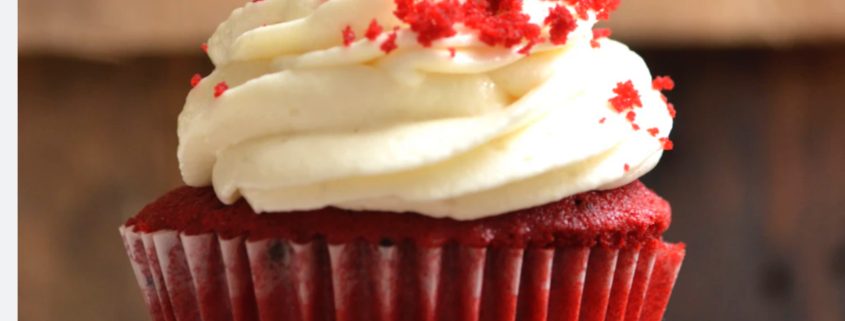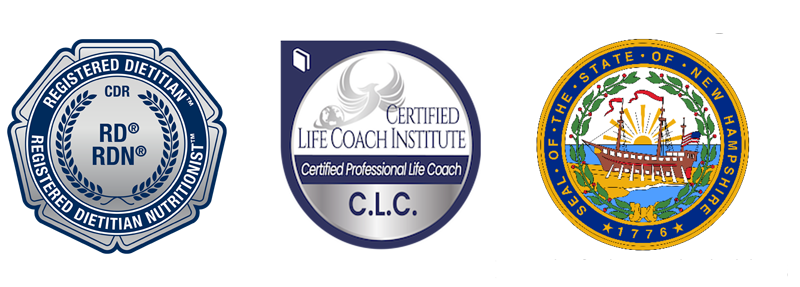I Quit Sugar
If you follow me on TikTok, you may have seen the posts of my current journey of quitting sugar. In general, I consume very little added sugar. Added sugar means the processed white stuff that is used in the creation of yummy treats. It also included the hidden added sugar lurking in foods such as pasta sauce, yogurt, protein drinks, and granola. Our body treats honey, agave, and maple syrup the same way as table sugar but it treats sugar that is naturally found in food such as in plain unprocessed fruit ( think washed fresh berries) and dairy (think any mammal milk) very differently. So I do not include naturally occurring sugar in fruits, root vegetables, or mammal milk in my definition of added sugar. Over holidays I indulge in some treats. I love a good cookie or piece of apple pie. Unfortunately, not only do my taste buds love it- so does my brain. Once my brain has a little taste of the sweet stuff it nags at me to have some more :). Unless I make a concerted effort to “quit sugar” my brain will continue to ask for more and the amount it would like will increase. My reasons for not eating added sugar include its inflammatory nature and impact on blood sugar. I have end stage arthritis in my toes and my pain is increased dramatically when I eat sugar. Arthritis is an inflammatory chronic disease and sugar is the number one food substance that fuels inflammation. I run a high fasting blood sugar which means my morning blood sugar is higher than it should be. Both of these nuisances are genetic in nature and they require an effort to manage on my part. Its the human form I was gifted and I harbor no resentment or poor me thoughts. Eating foods with added sugar creates results for me that I do not want. Pain and higher than desirable blood sugar. So why in the world do I find myself in need of a ” I quit sugar” week. Because I have a normal brain and sugar is incredibly addictive. Did you know that sugar is considered the most significant addiction? It is. This is because it is legal, it is everywhere and food manufactures are counting on the fact that added sugar is addictive to sell more products. A lot of money is made from our collective addiction to highly processed sugary foods.
Do you find yourself indulging in sweet treats like pies and cookies or sugar sweetened cocktails during holidays? If you do and you would like to learn more about why it happens and how you can press pause on added sugar- this blog is for you. I am going to delve into the science first and then give you specific steps you can take to rein in consumption of sugar and perhaps to take on your own “I quit Sugar”.
The Science behind the addictive nature of sugar.
When foods with added sugar are digested there is a corresponding release of dopamine. Dopamine is a biological reward system, a feel good hormone. If we eat high sugar foods often and in large amounts, the dopamine receptors in the brain down-regulate. This results in less receptors available for dopamine. This means that over time the effect of dopamine is blunted. We will need more and more sugar in order to get the same level of pleasure. We likely enjoy the foods we crave very much but we don’t just crave them because they taste good or because we “lack will power”, we crave them because they do something for us physiologically that our brain likes. We have developed cravings for foods that make us temporarily feel good.
Sugar has a powerful effect on the reward centers of the brain and in this way it is addictive. This addiction is similar to drugs such as cocaine and nicotine. Despite our current media attention, it is arguable that sugar addiction is more prevalent than illicit drugs or nicotine. Susceptibility to food craving is independent of body size. That is if you are overweight you are not any more susceptible to food cravings than those who are not overweight. There is research looking at the addictive nature of processed foods, specifically those high in sugar and the evidence is suggestive that not only is the brain impacted by the volume of sugar but that the food itself lures us into eating more than we wish to or know we should.
Psychological factors influence the intensity and nature of our food cravings. It is common knowledge that our emotional state impacts food cravings. Being an emotional or stress eater is very common and the foods chosen during an episode of emotional eating are usually foods that are high in added sugar, flour, or salt or all three.
Time to introduce another hormone that plays a role in food cravings- Serotonin. Serotonin is the hormone responsible for the food mood connection. When serotonin levels are low we are more likely to be depressed and when they are normal to high we are happier. This is information we all are familiar with because there is plenty of advertisement for medications used to treat depression that target the serotonin system. What you may not know is that 80 to 90 % of the body’s total serotonin is found in specialized cells in the gut. There is rising evidence that serotonin is important in our hunger signaling, particularly in feelings of fullness and therefore is somehow involved in modulating food intake. Foods that are naturally high in serotonin are walnuts, plantains, pineapples, bananas, kiwi, plums and tomatoes. These foods can increase serotonin in the gut and help maintain efficient communication between the gut and the brain. Serotonin in its complete form cannot pass through the blood- brain barrier and because of this we need to have its building blocks in our diet such as Tryptophan. When serotonin levels are low, tryptophan is needed in the brain to produce more serotonin. Our brilliant bodies understand this because we crave foods that are naturally high in tryptophan when we are stressed. Carbohydrates are the biggest source of tryptophan. This may be why sad feelings lead to wanting to eat processed carbs even when more nutritious options are available. There are healthier options to boost Tryptophan: turkey, chicken, oats, tofu, lentils, bananas, milk ( think the traditional milk at bedtime), yogurt, eggs, nuts, beans, fish and cheese.
I am choosing to end the discussion on the science now and give you some tips and steps that will help you decrease sugar intake and sugar cravings. Is this a result you wish for yourself?
How do we Reduce Sugar Cravings
- Quit or significantly limit added sugar. The less you eat, the less you will crave.
- Eat protein and fiber with each meal and snack. This creates a smoother rise in blood sugar which avoids the sharp blood sugar rises and falls which causes a roller coaster which in turn affects food intake and mood. Example- a breakfast of two eggs and two slices of One Mighty Mill whole grain bread toasted with grass fed butter and 1 cup of raspberries.
- Make a goal to manage your cravings by planning the occasional “treat” The key is limiting the frequency, make a plan and stick to it. In a six-month study on the effects of calorie restriction for the purpose of weight loss, the participants who managed their food cravings by planned allowances lost the most weight [source: ScienceDaily].
- Fill up on fiber rich foods. Fiber keeps you feeling full longer, slows down the rise in blood sugar which helps to smooth out the digestion of carbohydrates. This in turn helps avoid the hungry crash that follows low fiber/processed carbs. Eat fruits, vegetables and whole grains with meals or add to protein for a snack if you need one. A dessert can be both tasty and high fiber such as – such as apple crisp made with oats and 50 % less sugar than the recipe calls for.
- Do not rely on will power to curb food cravings. Will power is not the best part of you to make important decisions. We spend on average of 4 hours every day resisting something or exercising self -control. We are left with a will power gap. The will power gap allows us to justify a behavior that deviates from our plan to eat well. The alternative to using will power is planning. PLAN PLAN PLAN. Decide what you are going to eat the day before, write it down, and have your own back by doing what you planned. Say/write what you are going to do and honor your commitment to yourself. Plan your special treats so that when you have an urge you can remind yourself that you made a plan for a treat.
- Food cravings generally last 30 seconds. Let yourself be uncomfortable with an unanswered food craving, its just 30 seconds.




